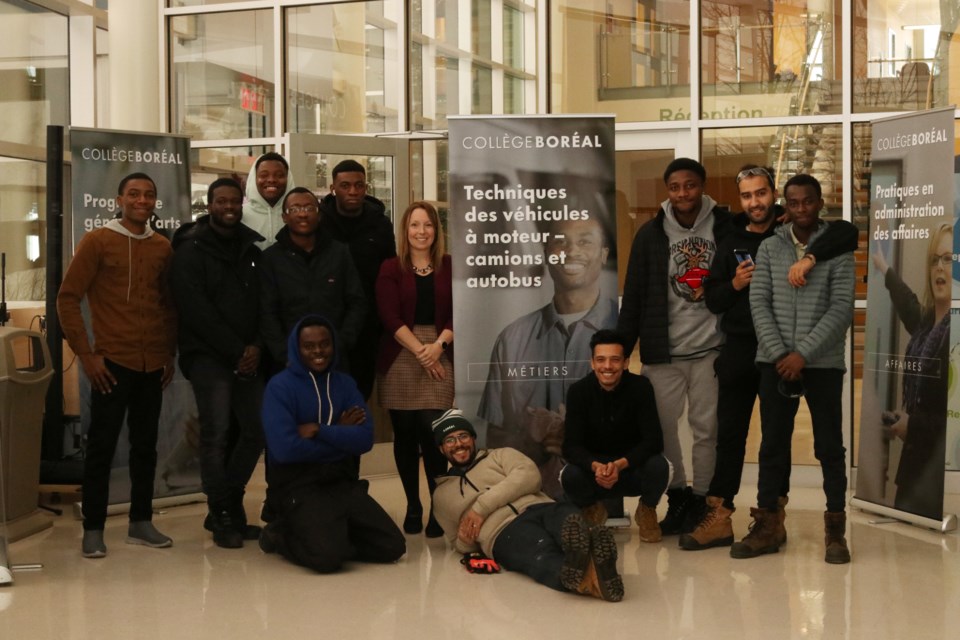Collège Boréal is extending a helping hand to students looking to move to Canada.
The college’s truck and coach technician program has attracted the attention of international students and employers looking to fill roles in Timmins and other Northern Ontario communities.
The two-year program is in its second year, with many students set to graduate and move into the job market this year.
“The pilot was to see if we could recruit internationally to fill that workforce need,” said Mélanie Dufresne, the director of the Timmins campus.
Incentives are in place for students looking to come to Timmins, and Collège Boréal also has a settlement program to help students find their footing when they arrive, and find reasons to stay.
So far, the college has 20 international students enrolled from five different countries, and they’re already making an impact.
After the first major intake of international students, the college also recognized a need for housing and partnered with a local landlord to provide rooms for students coming into the program.
"We did this agreement based on what we thought was important, so it's close to the college, it's close to groceries," Dufresne said. "We wanted to make sure that if the college is bringing people over, we wanted to know there was adequate housing for them."
The college has been working with the Timmins Economic Development Corporation (TEDC) and the Rural and Northern Immigration Pilot (RNIP) to make sure the students have work and reasons to stay in the area after they graduate as well.
“There’s always some culture shock, coming to a new place, but there’s a community growing here and we want to make sure everyone has what they need to succeed in Canada,” said Dufresne. “Immigration throughout Canada fills that need, but within the Francophone population, it’s very important.”
They’re offering settlement services to both English and French-speaking immigrants, as well as language classes to help people integrate into the community.
The recent increase in communities that RNIP can cover, including Kapuskasing and Hearst, means that students have more locations to work from while still qualifying for the permanent residence program.
Dufresne said that having this education in French also draws recruiters from Québec companies as well.
“We want them to be able to work anywhere and to be comfortable working anywhere,” she said. “We work closely with employers to make sure we know what the job needs are.”
— TimminsToday




